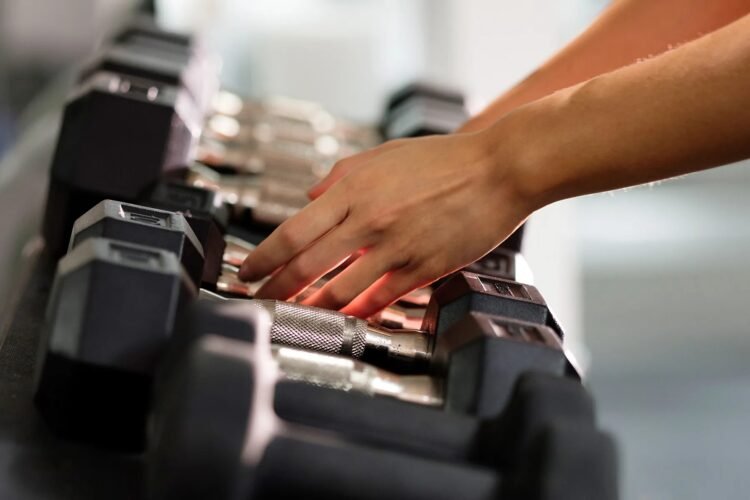How to Minimize Eczema Flare-ups at the Gym and on the Job
Morning exercise has many benefits, but for those with eczema, heading to the gym before work can create a unique set of challenges. Heat and sweat can trigger flare-ups, the post-workout breakfast meant to boost energy might actually worsen symptoms, and the stress of workplace demands after an intense workout can also be a trigger.
The takeaway: If you prefer to kick off your workday with a gym session, you’ll need a well-thought-out plan to manage your eczema effectively.
Meet Matt Knight, one of London’s top fitness experts. His passion for bodybuilding began in his teens, inspired by a book by Arnold Schwarzenegger. Earning the nickname “Diesel” from his training partner, Knight quickly found success as a personal trainer in his early 20s. However, when the gym he worked at closed, and a shoulder injury sidelined his workouts, his stress levels skyrocketed. Soon after, Knight developed severe eczema that covered his body, including painful flare-ups on his feet that made walking difficult.
“I used to stay awake at night scratching,” he recalls. “The eczema on the soles of my feet was so bad they were cracked and bleeding, and I was on antibiotics.”
Despite visiting multiple doctors, Knight found little relief—until he identified the foods that triggered his flare-ups. Changing his diet led to a reduction in symptoms. Simultaneously, he discovered ways to exercise without worsening his eczema, enabling him to restart his career and significantly lower his stress levels.
Now in great shape, Knight is dedicated to helping others who want to exercise, work, and keep their skin healthy. He shares three essential tips for managing eczema while maintaining an active lifestyle and achieving an itch-free workday.
1. Keep Cool and Clean
After realizing that constant patch tests weren’t solving his eczema, Matt Knight began researching his condition, identifying triggers, and working to avoid them. One major trigger for him is getting hot and sweaty, which is hard to avoid when you’re serious about working out like Knight is. To manage this, he developed a post-workout routine: “After a workout, I make it a priority to cool down and clean up as quickly as possible. A quick shower with cool water is ideal if heat triggers your eczema. The key is not to prolong it.”
The National Eczema Association suggests the “soak and seal” method:
- Shower for just 5 to 10 minutes using a gentle, soap-free cleanser.
- Gently pat your skin dry, leaving it slightly damp.
- Apply any prescribed topical medication.
- Within 3 minutes of exiting the shower, apply moisturizer all over your body.
- Wait a few minutes before dressing to allow your skin to absorb the moisturizer.
“You don’t want to strip your skin of its natural oils and leave it dry,” Knight advises.
2. Reboot Your Breakfast
Through careful analysis of his diet, Matt Knight discovered that certain foods aggravated his eczema. “It’s crucial to minimize inflammatory foods,” he advises. While there isn’t a definitive connection between eczema and food allergies, avoiding foods that trigger allergic reactions might help reduce flare-ups, according to the Cleveland Clinic. Common allergens include peanuts, gluten, and alcohol. Knight suggests cutting back on red meat, dairy, whole grains, flour, and sugar, while increasing your intake of fish and vegetables. He also cautions against certain so-called health foods: “That whey protein shake and all those eggs might be causing more harm than good.”
3. Boost Your Attitude
After leaving the gym, focus on maintaining a positive mindset. Instead of stressing about a possible flare-up on your way to work, remind yourself that you’ve taken steps to prevent one. Practice deep breathing and reassure yourself that you can handle whatever the day brings. Find ways to reduce stress at work—if you’re in a leadership role, consider delegating tasks to lighten your load.
And above all, stay determined. “Whether it’s stress, environmental factors, or diet, keep searching for the cause and don’t dismiss any possibilities,” Knight advises. “There’s always a solution—don’t stop until you find it.”



